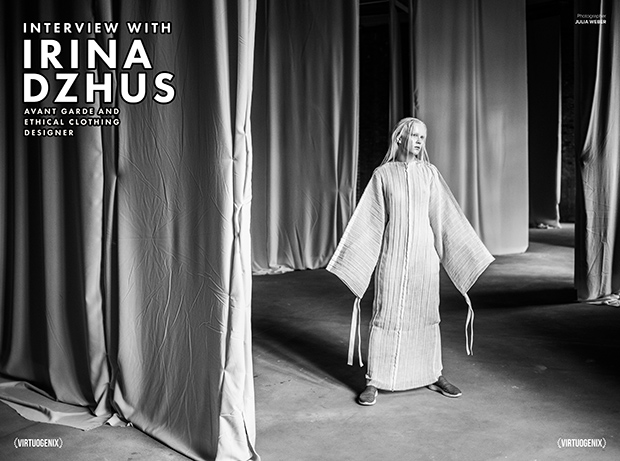

Will you tell us the story behind the formation of your brand?
I dreamt of being a fashion designer since I was 5. I went to an art school in my hometown, Kiev, to develop my artistic skills. At the age of 12, I began to work out my own design identity. Soon, I discovered a Ukrainian designer Victoria Krasnova, whose experimental and authentic work amazed me. I wanted to create by the same principles: deep analysis of a garment’s essence, inventing revolutionary cut concepts and use of alternative techniques. I did an internship with Krasnova, simultaneously with my studies at Kiev National University of Technologies and Design. Upon my graduation in 2010, I have launched my own brand.
With the early DZHUS collections, conveying edgy industrial aesthetics, we’ve got wide
media coverage, which, however, brought us much more admirers than real customers. I’ve gained a reputation of a futuristic costume designer, which wasn’t my aim, even despite my collaboration with THE HUNGER GAMES and some celebrities. I wanted to create conceptual apparel to be worn by intelligent and independent individuals in their everyday life. To move further, I developed my technological skills, my taste and ethical world- view, and have reconsidered my vision of a modern fashion product. I found it even more exciting to adapt innovative pattern-making ideas to the ready-to-wear standards and I’ve witnessed how people’s impression of DZHUS changed, along with increased demand.
Balancing the conceptual approach and the business aspect is a difficult part of running an avant-garde brand. Majority-oriented marketing suggestions rarely match our refined vision and considerate ideology. Big profit is often inseparable from a big compromise in aesthetics, ethical issues or just quality. Thus, the financial aspect has become the biggest concern in our way. As a niche brand, DZHUS is targeted at a very limited audience, whereas any brand’s development requires big investment. Today, the major issue for us is time. Although conceptual designers are associated with SLOW FASHION, in reality, we are expected to remain season-oriented, with minimum 2 collections yearly. As long as each of DZHUS pattern is designed by me personally, it takes me a long time to make constructions and work out technology for every garment. We don’t even have half a year to produce the samples, as we need to allow a few months for communication with buyers and press before the collection is officially presented.Being constantly busy and in a rush results in huge stress, demotivation and a risk to start losing the considerate approach and high quality one day. To avoid that, I’m currently in the process of reconsidering DZHUS’ place in the industry and our way in business.
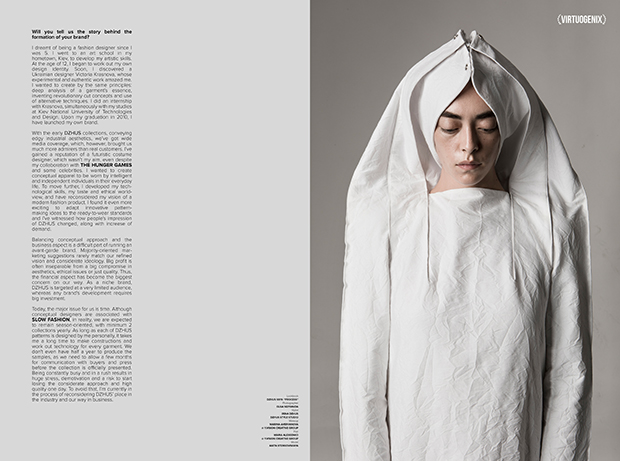
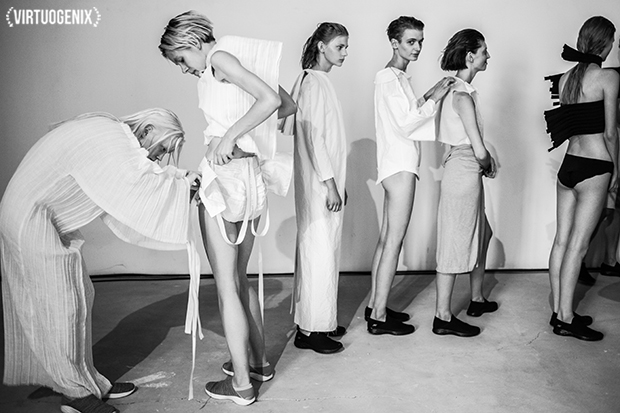
What is the main essence or philosophy of your brand? And, what are the characteristics that separate your brand from any other brand?
What makes DZHUS unique is our 100% AUTHENTIC EXPERIMENTAL CUT. I find it
extremely important to release only innovative designs. I consider it plagiarism to replicate styles that have already been invented by someone else. In regards to basic and
classic pieces, I think it’s a prerogative of mass market (which shouldn’t be underestimated), whereas a designer is supposed to design – and that’s what I do for DZHUS. But what is probably even more important about DZHUS is our ideology. We stand for consciousness and humanity and make all our products VEGETARIAN- FRIENDLY, using only CRUELTY-FREE materials and technologies. I aim to show with my designs that conscious fashion doesn’t mean it’s boring.
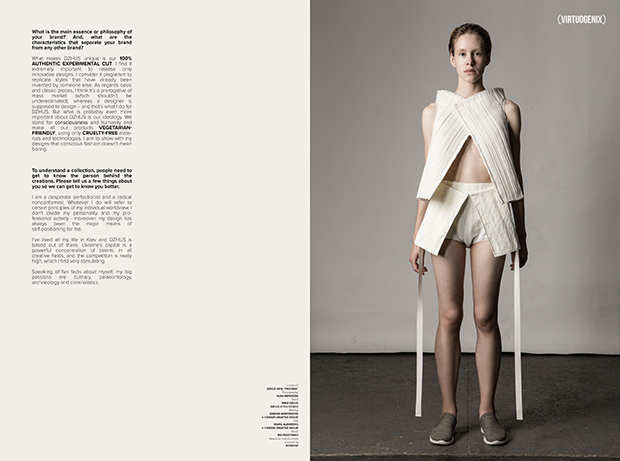
To understand a collection, people need to get to know the person behind the creations.
Please tell us a few things about you so we can get to know you better.
I am a desperate perfectionist and a radical nonconformist. Whatever I do will refer to
certain principles of my individual worldview. I don’t divide my personality and my professional activity – moreover, my design has always been the major means of self-positioning for me.
I’ve lived all my life in Kiev and DZHUS is based out of there. Ukraine’s capital is a powerful concentration of talents in all creative fields, and the competition is really high, which I find very stimulating. Speaking of fun facts about myself, my big passions are culinary, palaeontology, archaeology and criminalistics.
How do you handle the manufacturing aspect of your brand?
We opt for local production, hence we can make sure our manufacturing process is
high-quality and ethical at all stages, involving only clean technologies and well-paid labour.
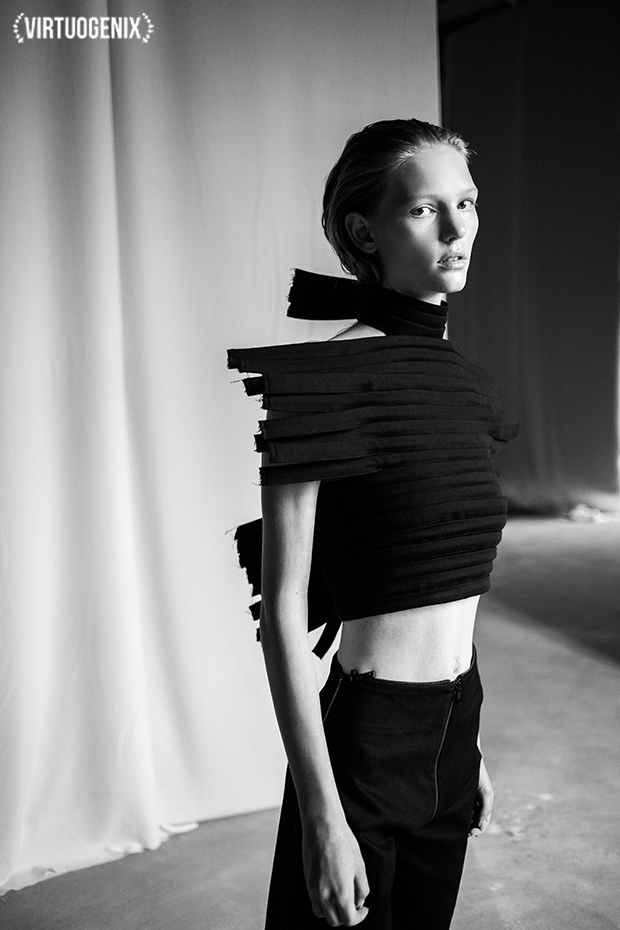
What are the things about you and your work that most people are not aware of?
One important thing I want to say about my designs is that there’s much less hidden
sense behind them than spectators tend to imagine, and much more design as such than
most people can perceive. Naturally, I prefer developing concepts to explaining them.
Speaking about me, I don’t really enjoy dedicating all my life to work. What stimulates me
to generate new concepts non-stop is not a personal ambition but a feeling of my destination and duty to grab these inventions from the cosmos of ideas and bring them to the physical dimension. I just cannot let them remain unmaterialised and unrecognised. I aim at, eventually, set up my business in a way to be able to handle only the design aspect
(which is now probably 10% of all my activity within the brand) and allow time to do something for my own fun and personal satisfaction. Together with my husband Anatolii (who manages several directions at DZHUS as well), I would launch a vegetarian food delivery service or a small waste sorting factory, and would try to help homeless animals much more than we do now.
Above is an excerpt from the VIRTUOGENIX S/S 2019, available in select bookstores and newsstands worldwide and on Amazon.com.
Additional Backstage Photographs
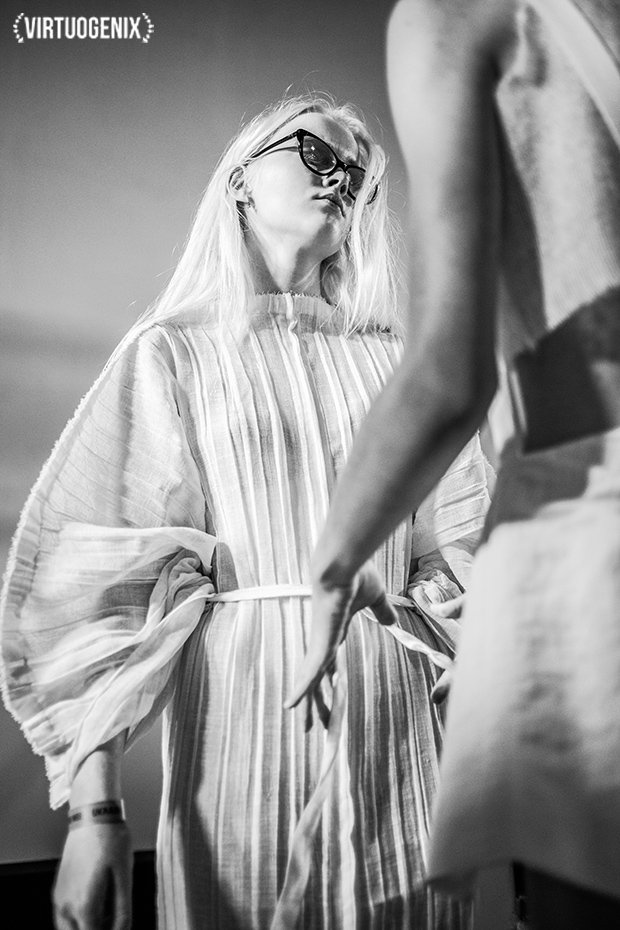
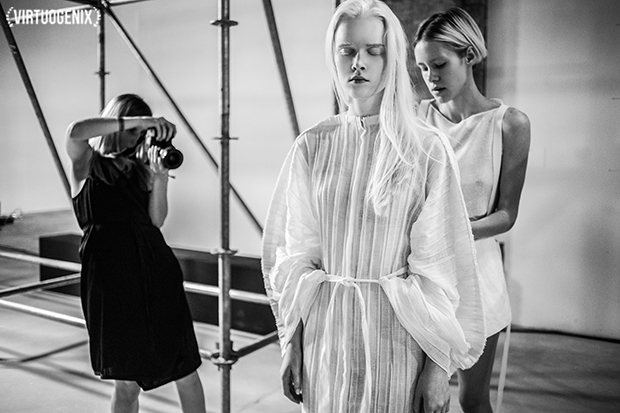
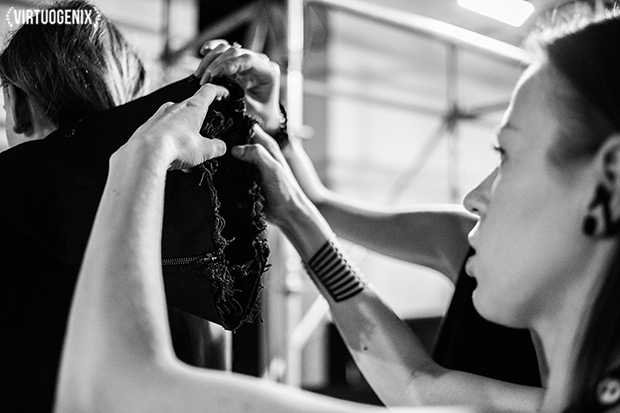
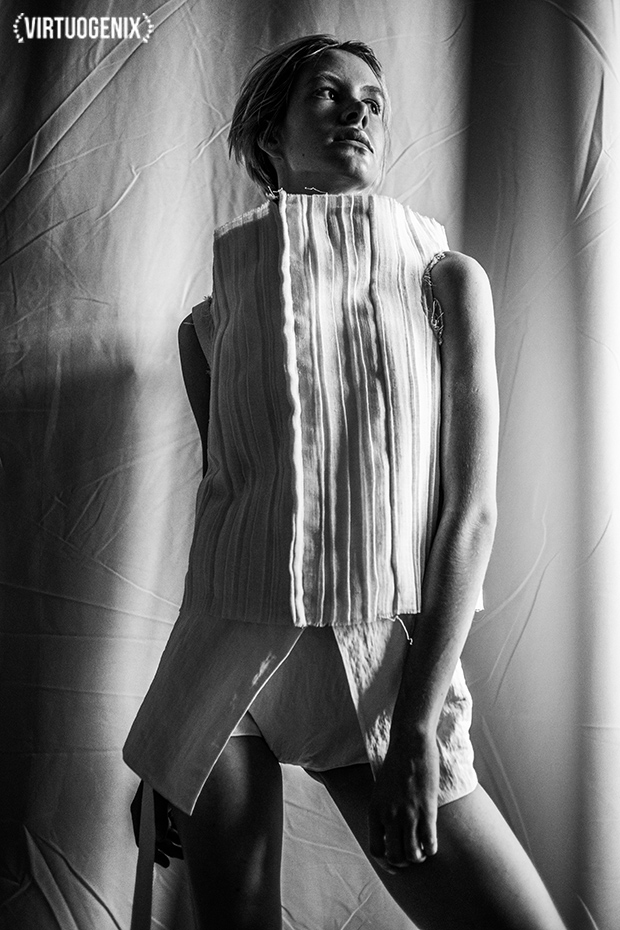
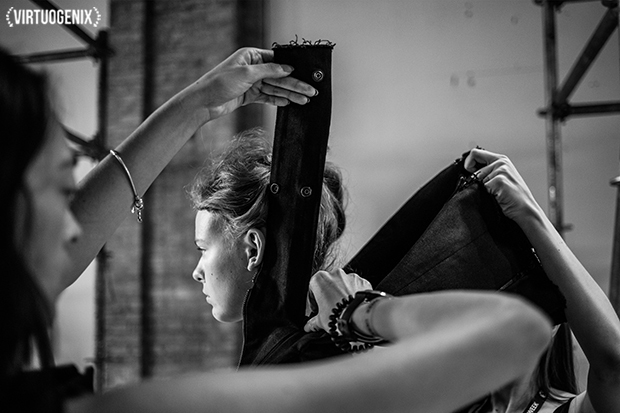
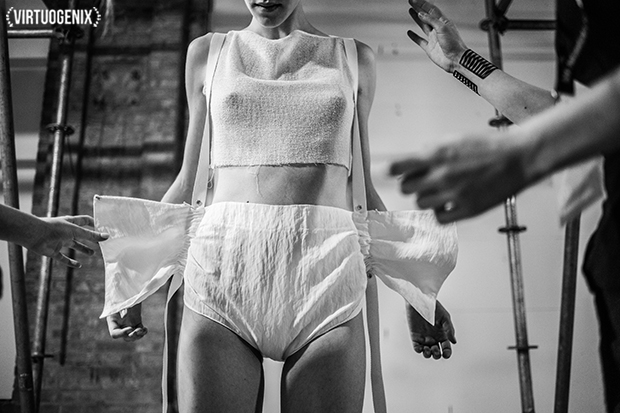
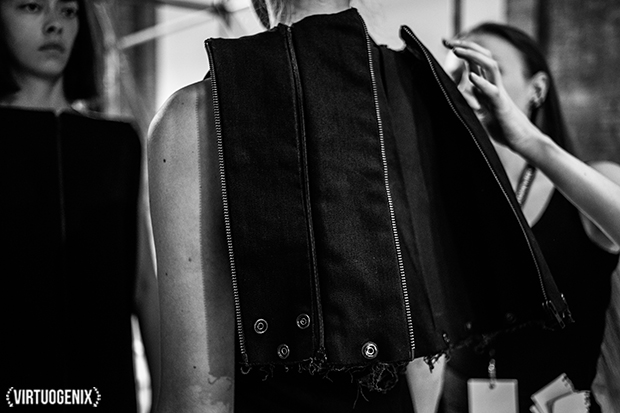
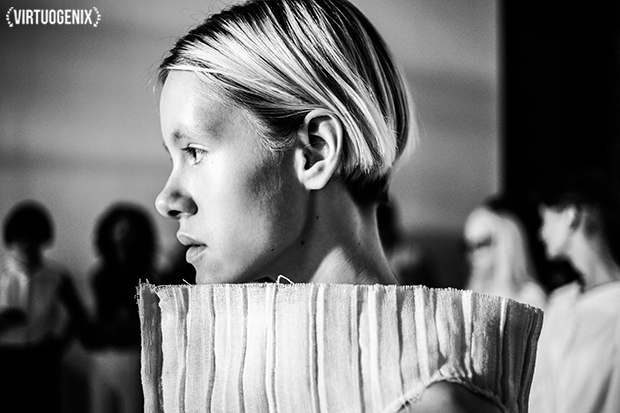
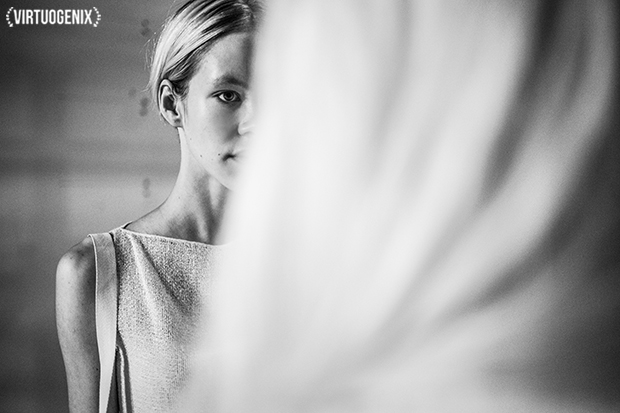
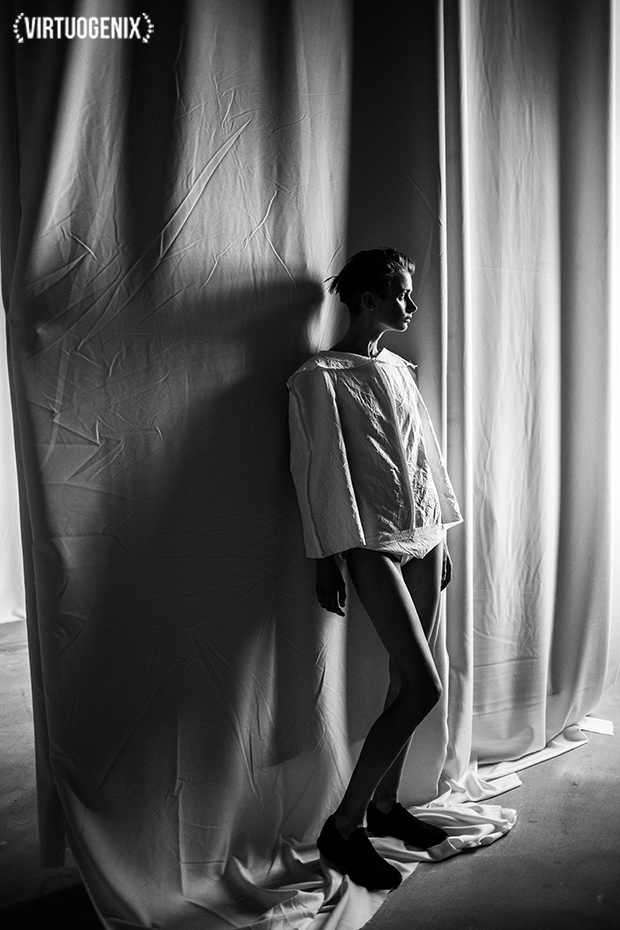
Backstage photography by JULIA WEBER

